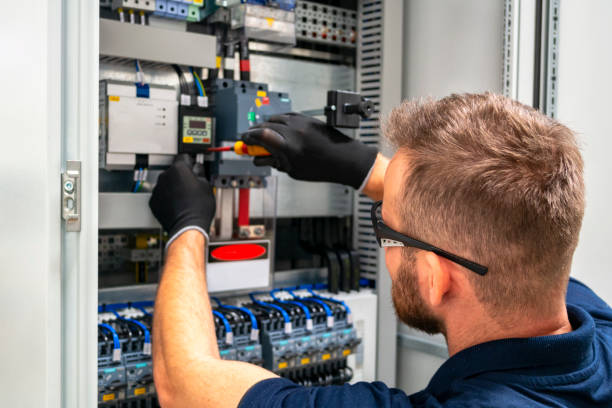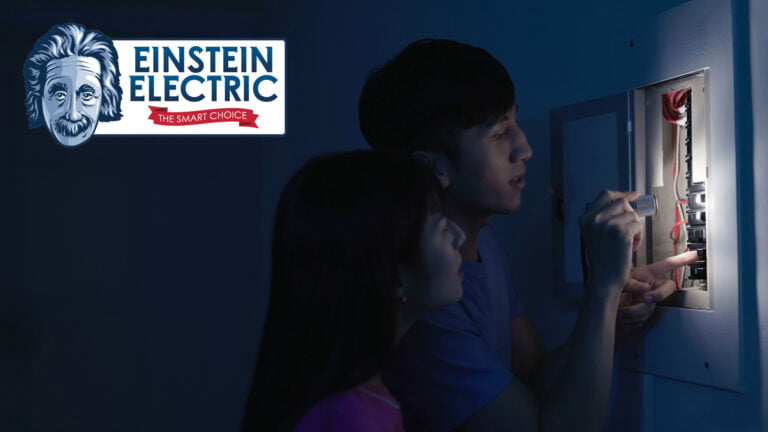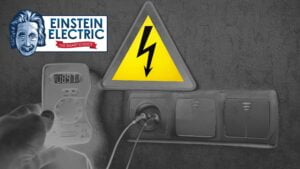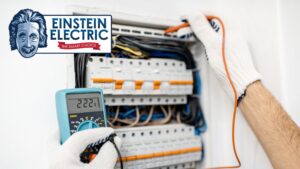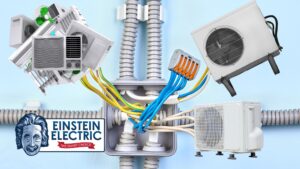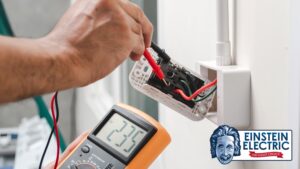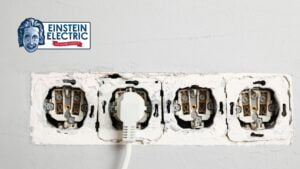Power outages are unpredictable and can occur due to various reasons such as severe weather, equipment failure, and even human error. It’s important to be prepared for such situations to ensure your safety and well-being. In this article, we will discuss what you should do if there is a power outage.
Stay Calm and Assess the Situation
The first thing you should do during a power outage is to remain calm and assess the situation. Check if your neighbors are also affected by the outage, and try to determine the cause of the power failure. If you have access to a radio, listen to the news or check social media for updates on the outage.
During a power outage, it is indeed important to stay calm and assess the situation. Here are some steps you can take:
- Remain calm: It’s natural to feel a bit uneasy during a power outage, but it’s essential to stay calm and composed. Panicking can make it difficult to think clearly and take appropriate actions.
- Check with neighbors: If possible, check with your neighbors to see if they are experiencing a power outage as well. This can help determine the extent of the outage and whether it is limited to your residence or a larger area.
- Determine the cause: Try to identify the cause of the power failure within your property. Check your circuit breaker or fuse box to see if a circuit has been tripped or a fuse has blown. If everything appears normal, it is likely a larger-scale outage.
- Contact the utility company: If you confirm that it is a widespread power outage affecting your area, contact your utility company or power provider to report the issue. They may already be aware of the outage, but reporting it can provide additional information and help expedite the restoration process.
- Gather information: Use alternative sources of information, such as a battery-powered radio, if available, to listen to local news updates or emergency broadcasts. You can also check social media platforms on your mobile device for updates from local authorities or the utility company regarding the outage.
Ensure Your Safety
If you’re indoors, turn off all electrical appliances, including lights, to prevent a power surge when the power is restored. If you’re outdoors, stay away from downed power lines or any exposed electrical equipment. Avoid using candles or any other open flames as they can be a fire hazard. If you have a generator, make sure to use it outside and away from any windows or doors to prevent carbon monoxide poisoning.
ensuring your safety is paramount during a power outage. Here are some additional safety measures to follow:
- Turn off electrical appliances: To prevent a power surge when the electricity is restored, it’s advisable to turn off and unplug all non-essential electrical appliances. Leave one light switched on, so you’ll know when the power is back.
- Stay away from downed power lines: If you notice any downed power lines or exposed electrical equipment, keep a safe distance and do not touch them. Downed power lines can still be energized and pose a severe risk of electric shock. Contact your utility company immediately to report the issue.
- Use alternative light sources: Avoid using candles or open flames as a light source during a power outage. Instead, rely on battery-powered flashlights, lanterns, or LED emergency lights. If you must use candles, place them in sturdy candle holders and never leave them unattended.
- Ventilation and carbon monoxide safety: If you are using a generator for backup power, ensure it is placed outside in a well-ventilated area, away from windows, doors, and vents. Generators produce carbon monoxide, which is a colorless and odorless gas that can be fatal. Never operate a generator indoors or in an enclosed space.
- Be cautious with food and refrigeration: Keep refrigerator and freezer doors closed as much as possible to maintain the cold temperature. A well-filled freezer can keep food frozen for about 48 hours during a power outage. If in doubt, discard perishable food that has been at room temperature for more than two hours.
- Stay warm or cool: Depending on the weather conditions, consider dressing in layers to stay warm or using fans and open windows for ventilation during a power outage. However, exercise caution when using alternative heating or cooling methods to prevent carbon monoxide buildup or fire hazards.
- Use stairs with caution: If you live in a multi-story building, be cautious when using stairs during a power outage, especially if there is no emergency lighting. Use a flashlight to navigate the stairs carefully and avoid rushing.
Remember, your safety and the safety of others should be your top priority during a power outage. If you have any concerns or encounter an emergency situation, contact the appropriate authorities for assistance.
Gather Emergency Supplies
It’s essential to have emergency supplies on hand in case of a power outage. These should include a flashlight, extra batteries, a first aid kit, bottled water, and non-perishable food items. If you have a landline phone, make sure it’s working as cell phone service may be disrupted during an outage.
gathering emergency supplies is crucial for preparedness during a power outage. Here’s a list of essential items to have on hand:
- Flashlights and extra batteries: Keep multiple flashlights in easily accessible locations. Make sure to have an ample supply of batteries to power them. LED flashlights are energy-efficient and can provide longer-lasting light.
- First aid kit: Have a well-stocked first aid kit that includes bandages, antiseptic solution, adhesive tape, pain relievers, and any necessary prescription medications. It’s important to be prepared for any minor injuries that may occur during a power outage.
- Bottled water: Store an adequate supply of bottled water, typically one gallon per person per day, for drinking and sanitation purposes. In the event of a prolonged outage, access to clean water may be limited.
- Non-perishable food: Keep a supply of non-perishable food items that do not require refrigeration or cooking. Examples include canned goods, granola bars, dried fruits, nuts, and ready-to-eat meals. Ensure you have a manual can opener available as well.
- Manual can opener: If you rely on canned food during a power outage, make sure you have a manual can opener since electric ones won’t work without power.
- Landline phone: If you have a landline phone, make sure it’s in working order. During a power outage, cell phone service may be disrupted or unavailable, so having a landline can be helpful for communication.
- Portable phone charger: Consider having a portable charger or power bank for your cell phone. This can help keep your mobile device powered for essential communication or accessing information during an outage.
- Blankets and warm clothing: In case of a power outage during cold weather, have blankets or sleeping bags readily available to stay warm. Dress in layers and have extra warm clothing on hand.
- Personal hygiene items: Include basic personal hygiene items such as hand sanitizer, wet wipes, toilet paper, and any necessary medications or medical supplies.
- Entertainment and comfort items: To help pass the time during an extended power outage, gather some entertainment options such as books, board games, playing cards, or puzzles. It’s also helpful to have comfort items like blankets, pillows, or stuffed animals, especially if you have children.
Regularly check and rotate your emergency supplies to ensure they remain fresh and functional. Being prepared with these essential items can provide comfort and aid in managing a power outage situation more effectively.
Keep Warm
During a power outage in cold weather, it’s crucial to stay warm to prevent hypothermia. Wear several layers of clothing and cover yourself with blankets. If you have a gas stove or fireplace, you can use them for heat. However, make sure to keep a window open slightly to prevent carbon monoxide buildup.
Staying warm is indeed essential during a power outage in cold weather. Here are some tips to keep warm safely:
- Layer clothing: Wear multiple layers of loose-fitting clothing to trap body heat. Opt for thermal or woolen garments if available. Layering allows you to adjust your clothing to maintain a comfortable temperature.
- Use blankets and sleeping bags: Wrap yourself in blankets or use sleeping bags to provide insulation and retain body heat. Use extra blankets to cover windows and doorways to minimize drafts.
- Close off unused rooms: If possible, close off unused rooms in your home to conserve heat in the occupied areas. Focus on keeping the main living areas warm.
- Utilize safe heating sources: If you have a gas stove or fireplace, you can use them for heating. However, ensure proper ventilation by cracking open a window slightly to allow fresh air circulation and prevent the buildup of carbon monoxide. Never use outdoor heating equipment like grills or camping stoves indoors, as they can produce toxic fumes.
- Portable heaters: If you have access to a portable heater that uses propane or kerosene, carefully follow the manufacturer’s instructions for safe usage. Place the heater in a well-ventilated area and keep it away from flammable materials.
- Warm beverages and hot water bottles: Drink warm fluids like tea, coffee, or hot chocolate to help raise your body temperature. Use hot water bottles wrapped in towels or blankets to provide localized warmth.
- Seek alternative shelter if necessary: If your home becomes too cold or you are unable to maintain a safe temperature, consider seeking temporary shelter with friends, family, or at a designated emergency shelter.
Remember, safety is paramount when using alternative heating sources. Be cautious to prevent fire hazards and carbon monoxide poisoning. If you experience symptoms like dizziness, headaches, nausea, or confusion, it may be a sign of carbon monoxide exposure. In such cases, seek fresh air immediately and contact emergency services.
Additionally, it’s important to monitor official communications and updates from local authorities or utility companies for information on power restoration.
Conserve Battery Power
During a power outage, it’s important to conserve your battery power as much as possible. Avoid using your cell phone unless it’s an emergency, and turn off all unnecessary electronic devices. You can also use your car to charge your phone or other electronic devices, but make sure to run the engine outside to avoid carbon monoxide poisoning.
Conserving battery power is crucial during a power outage to ensure you have communication and access to essential devices. Here are some tips to conserve battery power effectively:
- Prioritize communication: Limit non-essential phone usage to conserve battery power. Use your phone for emergency calls or important communication only. Consider sending text messages instead of making lengthy phone calls, as text messages consume less power.
- Disable unnecessary functions: Turn off Wi-Fi, Bluetooth, and GPS functions on your mobile device when not in use. These features consume battery power even when there is no active connection. Disable push notifications for apps that are not essential during the outage.
- Dim the screen: Reduce the brightness of your phone or other electronic device’s screen. Lowering the screen brightness helps conserve battery power significantly.
- Use power-saving mode: Most smartphones have a power-saving mode or low-power mode option. Enable this mode to optimize battery usage and extend the device’s battery life during a power outage.
- Close unused apps: Close all unnecessary apps running in the background, as they can drain battery power. Check your device’s task manager or app switcher to ensure apps are fully closed.
- Avoid unnecessary device usage: Minimize playing games, streaming videos, or using power-intensive applications that can quickly deplete battery life. Save your device’s battery power for essential communication and information needs.
- Car charging: If necessary, you can charge your electronic devices, such as phones or tablets, using your car’s charger. However, always ensure the car is parked outside with the engine running to avoid the risk of carbon monoxide poisoning. Charge devices for a short duration to conserve fuel.
- Power banks: If you have access to a portable power bank or external battery, use it sparingly to charge your devices when needed. Prioritize charging essential devices first.
Remember, it’s important to strike a balance between conserving battery power and maintaining essential communication. If you have access to alternative power sources, such as generators or solar chargers, use them judiciously and follow the manufacturer’s instructions for safe usage.
By implementing these measures, you can effectively conserve battery power and ensure that your electronic devices remain functional during a power outage.
Stay Informed
Keep yourself informed about the progress of the outage and when the power is expected to be restored. You can do this by checking social media or listening to the radio. If the outage is expected to last for an extended period, consider going to a community center or shelter where there is backup power and emergency supplies available.
Staying informed about the progress of the power outage is crucial. Here’s how you can stay updated:
- Check official sources: Monitor local news channels, the website or social media accounts of your local utility company, and official government channels for updates on the power outage. They will often provide information on the cause of the outage, estimated restoration times, and any necessary precautions.
- Social media: Check social media platforms for updates from local authorities, utility companies, and community groups. Many utility companies have dedicated social media accounts for outage notifications and updates. Follow these accounts for real-time information.
- Radio: If you have access to a battery-powered or hand-cranked radio, tune in to local news or emergency broadcast stations for updates on the outage. Emergency services often utilize radio communication during power outages.
- Community information centers: If the outage is expected to last for an extended period or you require assistance, consider visiting community centers, shelters, or designated emergency information centers. These locations often have backup power and can provide information, resources, and support during an outage.
- Neighborhood communication: Stay in touch with your neighbors and local community. Share information about the outage and collaborate to support one another. This can include sharing updates, resources, or even pooling supplies if necessary.
Remember to conserve your device’s battery power when using it to gather information. Use these communication methods sparingly and prioritize essential updates to preserve battery life.
By staying informed, you can better understand the situation, plan accordingly, and make informed decisions to ensure your safety and well-being during a power outage.
Plan Ahead
One of the best ways to deal with a power outage is to plan ahead. Make sure you have a backup power source, such as a generator or solar panels. Keep your emergency supplies stocked and easily accessible, and ensure that everyone in your household knows what to do in case of a power outage.
Planning ahead is indeed a proactive approach to dealing with power outages. Here are some steps you can take to prepare:
- Backup power source: Consider investing in a backup power source such as a generator or solar panels. Generators can provide temporary power during an outage, while solar panels can harness the sun’s energy to generate electricity. Ensure you understand how to safely operate and maintain these backup power sources.
- Emergency supplies: Prepare and maintain an emergency supply kit that includes essential items like flashlights, batteries, a first aid kit, non-perishable food, bottled water, and blankets. Regularly check and replenish the supplies as needed, ensuring they are easily accessible in case of an outage.
- Create an emergency plan: Develop a comprehensive emergency plan for your household that includes steps to take during a power outage. Make sure all family members are aware of the plan and know what to do. Assign specific roles or responsibilities to each family member, such as gathering emergency supplies or contacting utility companies.
- Communication plan: Establish a communication plan for your household in the event of a power outage. Identify a designated meeting place or a reliable point of contact outside your area. Share contact information and ensure everyone knows how to reach each other.
- Backup charging options: Consider having alternative charging options for your electronic devices, such as portable power banks or car chargers. This way, you can maintain communication and access important information during an outage.
- Know how to manually operate essential devices: Familiarize yourself with manual operation methods for essential devices like your garage door opener or gate. Understand how to manually open or close them in case of a power outage.
- Learn basic safety measures: Educate yourself and your family members on basic safety measures during a power outage, such as staying away from downed power lines, using alternative heating sources safely, and recognizing the signs of carbon monoxide poisoning.
- Regular maintenance: Schedule regular maintenance for your electrical system, including checking the condition of wiring, circuit breakers, and surge protectors. Proper maintenance can help reduce the risk of electrical failures and mitigate potential power outage causes.
By planning ahead and taking these steps, you can be better prepared to handle a power outage and ensure the safety and well-being of your household.
Report the Outage
Finally, if you experience a power outage, make sure to report it to your local utility company. This will help them to identify the extent of the outage and work on restoring power as quickly as possible. You can report the outage by phone, email, or through the company’s website.
Reporting the power outage to your local utility company is essential. Here’s how you can report the outage:
- Contact your utility company: Locate the contact information for your local utility company. This can usually be found on your electricity bill or on their website. If you have a printed copy of your bill, the contact information may be listed there as well.
- Phone: Call the designated outage reporting number provided by your utility company. This number is usually available 24/7 and specifically dedicated to reporting power outages. Follow the prompts and provide the necessary information about the outage, such as your location and any visible issues, to help the utility company assess and address the situation.
- Online reporting: Some utility companies have online outage reporting systems on their websites. Visit the company’s website and look for an outage reporting or customer service section. Fill out the required form with accurate details about the outage, including your address and any relevant information that can assist in identifying the problem.
- Mobile apps: Check if your utility company has a mobile app that allows you to report outages. Some companies provide dedicated apps with features for outage reporting and tracking restoration progress.
- Follow instructions and updates: Listen carefully to any instructions provided by the utility company during your call or through their automated message system. They may provide estimated restoration times or request additional information from you.
Remember to provide accurate information about the outage and any visible issues, such as downed power lines or sparks, if applicable. This will assist the utility company in prioritizing their response and restoring power efficiently.
By reporting the outage promptly, you contribute to the overall efforts to identify and resolve the issue, allowing the utility company to restore power to your area as quickly as possible.
In conclusion, power outages can be disruptive and even dangerous. However, by following these tips, you can stay safe and prepared during an outage. Remember to stay calm, ensure your safety, gather emergency supplies, keep warm, conserve battery power, stay informed, plan ahead, and report the outage to your utility company.

